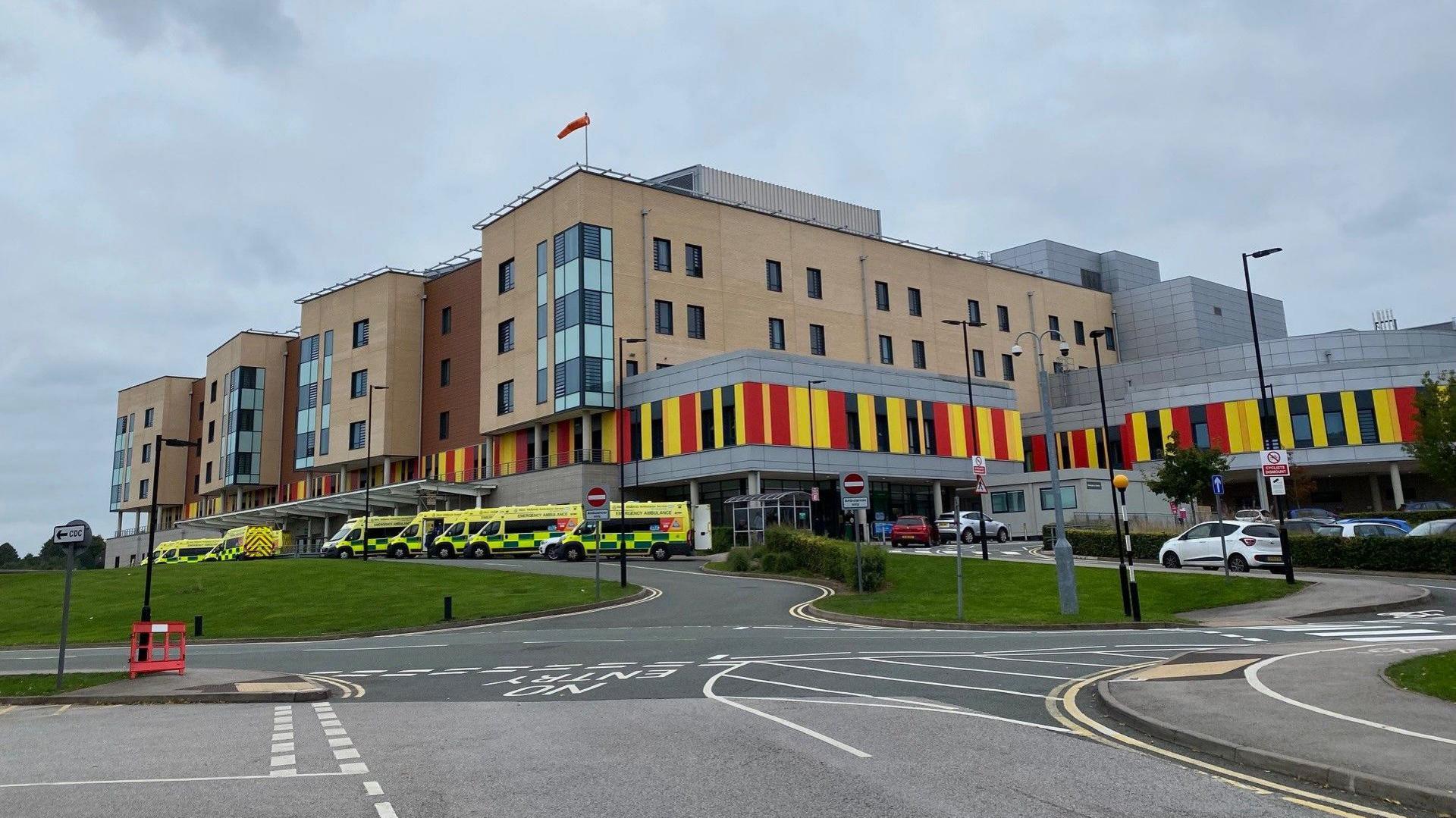Baby died due to 'rare complication of birth'

George Dosanjh died at the Royal Stoke University Hospital on 3 December 2022, just a few days after being born prematurely
- Published
A newborn baby died after just three days due to a "rare but recognised complication of birth," a coroner has found.
George Dosanjh died at the Royal Stoke University Hospital on 3 December 2022, after being delivered by emergency caesarean section.
He suffered multi-organ failure and brain injury due to a lack of oxygen after becoming separated from the placenta during his difficult birth.
After hearing two days of evidence during the inquest, coroner Fiona Gingell found that medical staff at the hospital had acted in line with training and guidance and their decisions had been "reasonable".
George's mum Charlotte Hird, from Stafford, was admitted into the Royal Stoke with abdominal pain on 27 November 2022 and subsequently went into early labour at 34 weeks.
Doctors decided to carry out an emergency caesarean section after becoming concerned by his falling heart rate.
During the procedure they found the placenta had started to separate, which developed into an acute abruption, cutting off George's oxygen supply.
Efforts to deliver him were hampered by impacted foetal head, where the baby's head becomes lodged in the mother's pelvis, meaning a further incision and a reverse breech procedure were needed.
'Dearly missed'
George was eventually delivered 42 minutes after the decision had been taken to carry out the caesarean.
He was in a very poor condition and was taken straight to the neonatal intensive care unit, where he died three days later.
Ms Gingell found that the decision to classify the procedure as a category two, rather than a more urgent category one, did not affect the outcome and that the placental abruption had not been the result of any medical intervention.
Ms Gingell concluded that the placental abruption had been the primary cause of George's death, but impacted foetal head meant it took longer to get him help.
The fact that he was born premature was a secondary factor, she said.
Giving a narrative conclusion, Ms Gingell said that George had died "as the result of a rare but recognised complication of birth".
She paid tribute to him, and offered her condolences to his family.
"It's very clear that he was very much loved by his family, and he is dearly missed by all of them," she said.
This news was gathered by the Local Democracy Reporting Service which covers councils and other public service organisations.
Get in touch
Tell us which stories we should cover in Staffordshire
Follow BBC Stoke & Staffordshire on BBC Sounds, Facebook, external, X, external and Instagram, external.
Related topics
- Published1 day ago

- Published2 days ago
